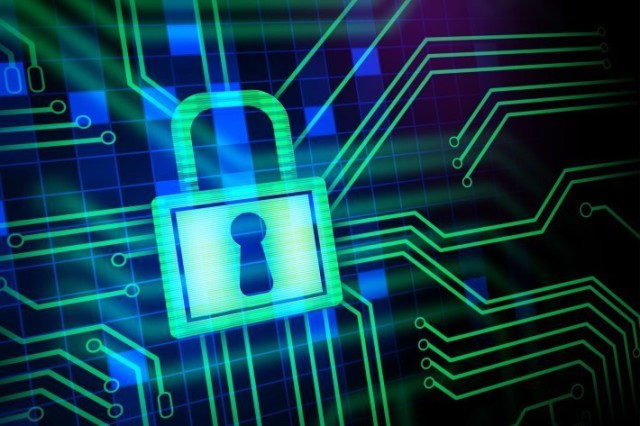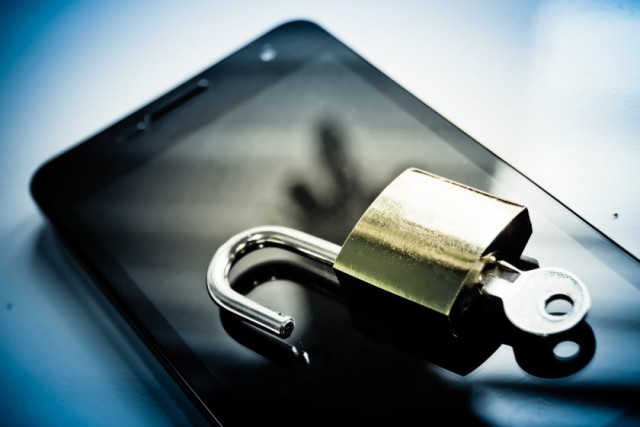Author's view on one of the burning topics of the outgoing month.

Generally speaking, we usually think of encryption in a positive way. It protects our data even if we lose our device, hides private information from hackers, and brings a little peace of mind to our digital lives. Be that as it may, some recent events have revealed the dark side of encryption and the difficult struggle to make it the norm.
The San Bernardino terrorist attack in late 2015 hit headlines again recently, this time over the FBI's failure to break through the encryption on the phone (iPhone 5c) of one of the criminals. James Koumi, the head of the department, again uses this failure to publicly mock encryption as an obstacle to law enforcement, and claims that encrypted information can shed light on the identity of possible accomplices or give access to facts about a bag of homemade Explosive devices. The delicate situation with the failure of the FBI to decipher the negotiations of terrorists, even after their capture or elimination, is increasingly covered in the media and takes on a political context. According to Koumi, “encrypted cell phones and text-messaging applications make it difficult for detectives and intelligence agencies to track conspiracy suspects in real time, or to locate and associate with the suspect's device.”

While all of this is true, comments online accuse the government of using the incidents mentioned as political motives to remove encryption. Even taking into account the NSA's ability to bypass online encryption, uncovered in 2013 by Edward Snowden, you need to understand that end-to-end encryption in IM clients such as Telegram and encryption of the entire disk is a more complex case. And it's not just the FBI that's unhappy.
The identical wording of two government bills (one from a Republican in New York, the other from a Democrat in California) quickly attracted widespread attention and suspicion. These bills included a ban on the sale of encrypted devices in the states mentioned, with the exception of those that could be decrypted by the manufacturer, and also implied huge fines for OEMs who refused to comply. This is practically what the head of the FBI called for, and in response to this was the introduction of a new bipartisan bill in the lower house of the US parliament, aimed at smoothing out draft laws at the state level. The Bill, called the Ensuring National Constitutional Rights of Your Private Telecommunications Act of 2016 (ENCRYPT for short), aims to repeal state bills, and its drafters say they are deeply concerned about the potential negative impact of a ban on the sale of encrypted devices in several US states.
The technical changes the @FBI demands would make it possible to break into an iPhone (5C or older) in a half hour. pic.twitter.com/v6GeFXXXBC
– Edward Snowden (@Snowden) February 17, 2016
We will most likely not be able to find out the truth about these bills: maybe they are secretly promoted by the NSA, the FBI or the CIA in order to facilitate the exposure of terrorist activities, maybe they were created simply to provide unlimited access for full-scale surveillance. – electronics manufacturers flatly refuse to provide him with a secret way to bypass encryption. The main debate this year will be whether the prospect of tracking a gang of wicked means the information available to all other users. And this controversy will flare up more and more, as the widely exaggerated cases are used as political 'pears' for beating, on one side of which will be the opinion of users, and on the other – the protection of both terrorists and law-abiding citizens.
The encryption debate escalates into a David versus Goliath confrontation with government on one side and users on the other, and the electronics industry mediated. The right to privacy is opposed to the duty to protect. End-to-end encryption against court-requested 'loopholes'. Online security versus government. Borders have been drawn, but neither side will surrender their positions.
Original material by Chris Carlon
Elir: Completed another page in the story of anonymity in the field of Internet correspondence. And she made a lot of noise. No wonder: if the manufacturer (in this case – Apple) made a deal with the government and created a similar insane, in my opinion, precedent, then the governments of other countries could take advantage of this experience, which is quite likely not happy Apple device users. One of the pillars of the ecosystem – the security of private data – is in question, and the vector of development of this sphere of mobile life directly depended on the decision from Cupertino. If a precedent is set, the experience could spread to other platforms around the world: all governments are not averse to keeping a closer eye on their citizens. Despite the fact that the problem was solved using regular methods without involving Apple, the requirement of the head of the FBI to provide the agency with a way to bypass encryption undermines the foundations of net neutrality, which is unacceptable.
I believe that such a scenario of events is quite capable of destroying the authority of a manufacturer who has 'bent' under one or another government and, as a result, has a very negative effect on the user base and on trust in technologies in general. The situation is, of course, curious, but it would be extremely imprudent to sacrifice the development of technologies, work done and innovations for the sake of the convenience of special services. Many device manufacturers have sided with Apple and this is good news.
